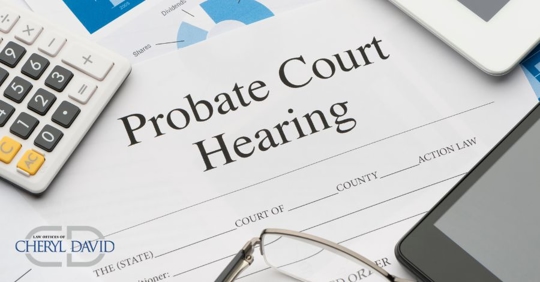The passing of a loved one is an incredibly difficult time, filled with grief and often uncertainty. For many families, the concept of "probate" adds another layer of apprehension. Misinformation and common myths about probate can make an already emotional process seem even more daunting. You need clarity and reassurance during these challenging times. Let's debunk some of the most prevalent probate myths.
Myth 1: If You Have a Will, You Avoid Probate.
Reality: This is perhaps the most common misconception. A will is a crucial estate planning tool that dictates how your assets should be distributed, but it doesn't automatically bypass the probate process in North Carolina. Probate is the legal process by which a court validates a will, ensures debts are paid, and oversees the distribution of assets according to the will's instructions or state law if there's no will.
While a will provides clear guidance, most assets named in a will still need to go through probate to formally transfer ownership. However, certain assets can avoid probate, regardless of whether you have a will. These include:
Jointly owned property with rights of survivorship (e.g., a home owned with your spouse).
Assets with designated beneficiaries (e.g., life insurance policies, retirement accounts like 401(k)s and IRAs, payable-on-death (POD) bank accounts, or transfer-on-death (TOD) securities).
Assets held in a revocable living trust.
Myth 2: Probate is Always a Lengthy and Expensive Process.
Reality: While probate can take time and involve costs, it's not always the drawn-out, wallet-draining nightmare some imagine. The length and expense of probate in North Carolina largely depend on the complexity of the estate, the presence of a valid will, and whether there are any disputes among beneficiaries or creditors.
For straightforward estates with a clear will and no conflicts, the process can be relatively efficient, often taking 6-12 months. More complex estates with substantial assets, numerous beneficiaries, or contested issues can indeed take longer. Costs typically include court filing fees, attorney fees, and executor fees. Strategic estate planning, such as utilizing trusts or properly designating beneficiaries, can significantly minimize the assets that must pass through probate, potentially reducing both time and expense.
Myth 3: All Your Debts Must Be Paid Before Heirs Receive Anything.
Reality: It's true that a deceased person's valid debts and taxes must be paid from the estate before beneficiaries receive their inheritance. This includes funeral expenses, medical bills, credit card debts, and any outstanding taxes. However, the executor of the estate has a responsibility to identify and pay valid debts. Creditors are typically given a specific period (three months in North Carolina after a notice to creditors is published) to file claims. Not all claims are automatically valid, and the executor has a duty to scrutinize them.
Your personal representative (executor) is not personally responsible for paying the deceased's debts out of their own pocket, unless they mismanage the estate or violate their fiduciary duties.
Myth 4: You Can Avoid Probate by Hiding the Will.
Reality: This is a dangerous myth with serious legal consequences. In North Carolina, there is a legal obligation for anyone in possession of a deceased person's will to file it with the Clerk of Superior Court in the appropriate county. Failing to do so can lead to penalties, and it will only delay the inevitable settlement of the estate. Assets cannot be legally transferred without proper administration, which typically involves the probate court. An unfiled will creates significant hurdles for heirs attempting to sell property or access accounts.
Myth 5: You Don't Need an Attorney for Probate.
Reality: While it might seem tempting to navigate the probate process yourself, especially for what appears to be a simple estate, it's rarely advisable. North Carolina probate laws can be complex, and errors can lead to significant delays, financial penalties, or even personal liability for the executor.
An experienced probate attorney can provide invaluable guidance, ensuring all legal requirements are met, deadlines are adhered to, and the estate is administered efficiently and correctly. They can help identify non-probate assets, manage creditor claims, prepare necessary filings, and represent the estate in court if disputes arise.
Seek Professional Guidance from a Greensboro Probate Attorney
Navigating probate can be a confusing and emotional journey. Understanding these common myths is the first step toward a clearer path. If you are a North Carolina resident facing the probate process or are looking to proactively plan your estate, please know that you don't have to go through it alone.
The compassionate and experienced team at the Law Offices of Cheryl David is here to help. We are dedicated to providing clear, professional guidance tailored to your unique situation, offering peace of mind during challenging times.
Contact us at (336) 717-0375 to schedule a consultation and ensure your family's future is secure.

